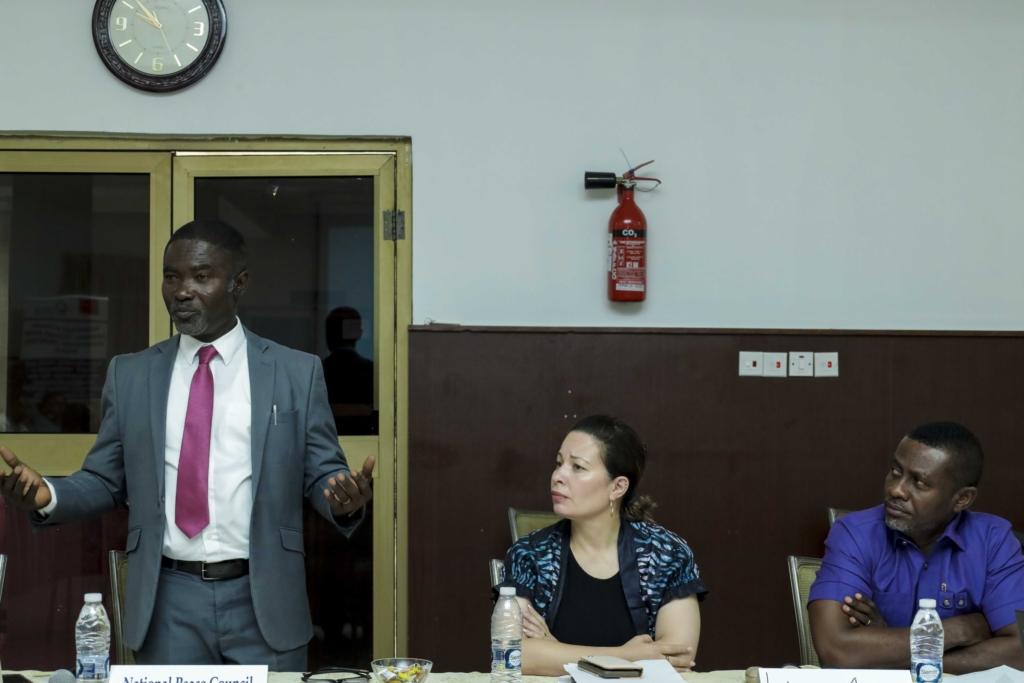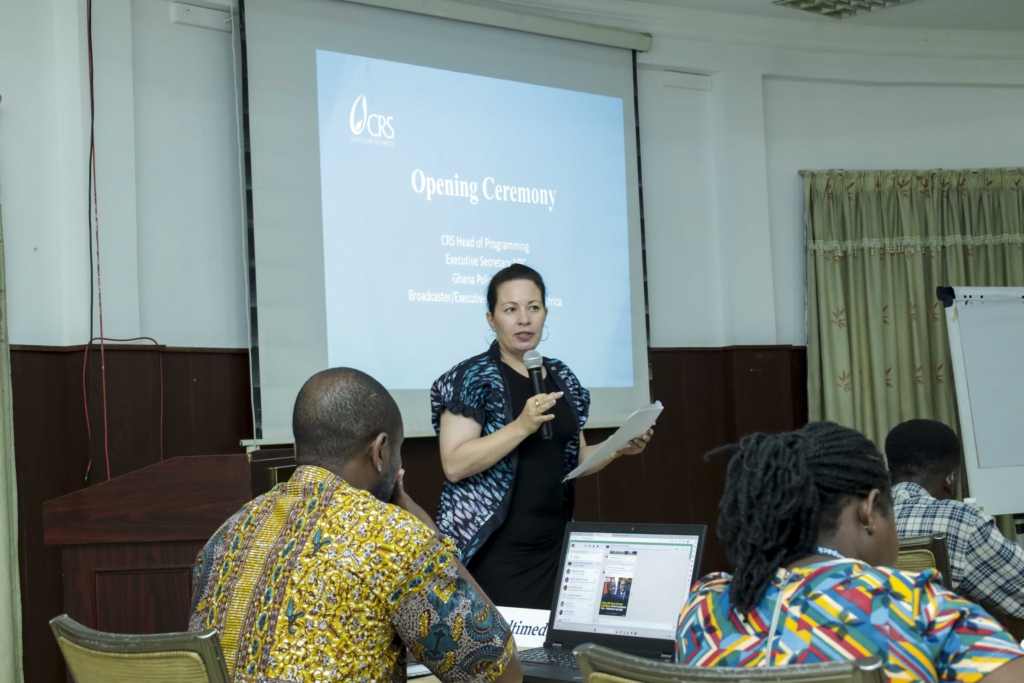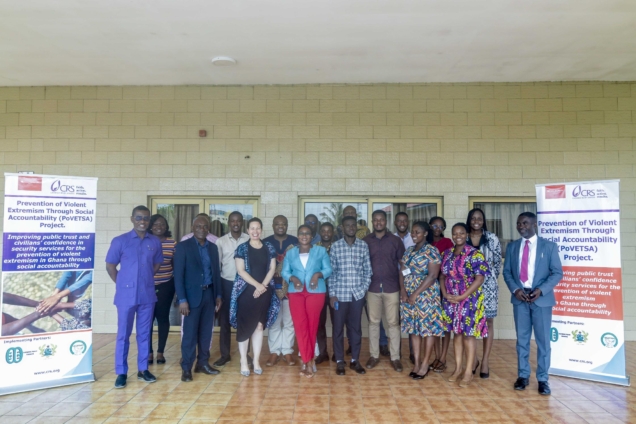The Executive Secretary of the National Peace Council, George Amoh, has urged journalists to be circumspect in their reportage on issues that have the potential to compromise the peace and security of the country.
He said that was also critical if the country was to prevent any attacks from violent extremist groups that were operating within the West African sub region.
“If you look at the sub region now, if you look at Mali, what has happened in our closest neighbour Burkina Faso, Gabon, you have to be very, very cautious in your reportage to keep this country from the attacks from insurgencies,” he said.

Mr Amoh gave the advice at a two-day training workshop on “Prevention of Violent Extremism” organised for some selected journalists in Accra.
The objective of the workshop was to deepen the understanding of the media on their role in the fight against violent extremism, and to enable them to be better prepared to report on the issue with sensitivity and accuracy.
Also, it aimed at strategically building consensus and trust to improve media-security agency relationship towards preventing violent extremism in Ghana.
It was organised by the Catholic Relief Services (CRS) in collaboration with the National Peace Council and formed part of CRS' Prevention of Violent Extremism through Social Accountability (PoVETSA) project, with funding from the Embassy of the Netherlands.
The training covered areas such as the legal framework of Preventing and Countering Violent Extremism and Terrorism (PCVET), human rights and VET, media and VET and media support intelligence and PCVET.
Mr Amoh said the media had a major role to play in informing and educating the public on the activities of violent extremist groups, adding that, in doing so, the national interest must guide them.
“If you have the opportunity to travel within West Africa you will realise that Ghana is uniquely placed, and we have to do all we can to sustain the peace for our sake and for the children who will take over from us.”
“Please, when you take your pen and you want to write, whatever you want to put on a sheet, either in social media or in the print media or air, the question should be, is this going to protect the interest of this country?” Mr Amoh said.
The Director, Naval Intelligence of the Ghana Armed Forces, Commander Philip Odoi-Narh, urged the media to abreast themselves with the country's security strategy document to guide them in the discharge of their duty.
The national security strategy is a living document, which indicates how the government of the day intends to deal with identified security threats.
Commander Odoi-Narh also stressed the need for collaboration between the security agencies and the media, particularly in information sharing to help avert any possible attacks.

A Course Director with the Kofi Annan International Peacekeeping Training Centre (KAIPTC), Augustine Owusu, also emphasised the need for government to address the push and pull factors, including perception of corruption by State and multinationals, bad governance, economic hardship and marginalisation to avert the possibility of citizens recruitment by such groups.
Head of Programming at CRS, Christina Gallagher, expressed the Organisation's commitment to peacebuilding efforts, particularly in the face of emerging threats of violent extremism in the region.
She indicated that the PoVETSA project sought to enhance a trust-building mechanism for Ghanaian national peace building institutions, Civil Society Organizations (CSOs), security services and civilians.
It is also centred on a vibrant peacebuilding infrastructure and civil society sector to empower a social contract that ensures an improved relationship between communities and the security services for the prevention of violent extremism.
“Since its inception in Ghana in 1958, CRS has carried out several interventions on peacebuilding. “The PoVETSA project is building on the gains of the Sahel Peace Initiative (SPI) which addresses the rising security crisis in West Africa’s Sahel Region,” Miss Gallagher added.
Latest Stories
-
CAFCC: “Dreams need to score early to unsettle Zamalek” – Former Zamalek striker Felix Aboagye
49 mins -
GHS launches mobile app to counter misinformation about vaccines
1 hour -
Election 2024: Care Ghana warns EC of recruiting political actors as Returning Officers
1 hour -
Mohammed Kudus gets 5th Premier League assist as West Ham hold Liverpool
1 hour -
Religious support source of my success – Asantehene
1 hour -
Sierra Leone energy minister resigns over electricity crisis, as power returns to capital
1 hour -
EC accuses Bright Simons, IMANI Africa of peddling falsehood
2 hours -
GRA/SML contract: Akufo-Addo has whitewashed the KPMG report – Inusah Fuseini
2 hours -
USM Alger receive warm welcome at Oujda Airport ahead of game against RS Berkane
3 hours -
2023/24 Ghana Hockey League to kick-off this weekend
3 hours -
All payments received from our contract with GRA are performance-based, says SML
3 hours -
Marrakech 2024: Ghana’s Zinabu Issah wins gold in women’s discus throw
3 hours -
Our contract with GRA followed due process; ignore contrary reports – SML
3 hours -
SML is just Agyapa in suit and tie – Bright Simons
4 hours -
Domelevo condemns selection of KPMG to audit GRA/SML contract as illegal and unprofessional
4 hours

